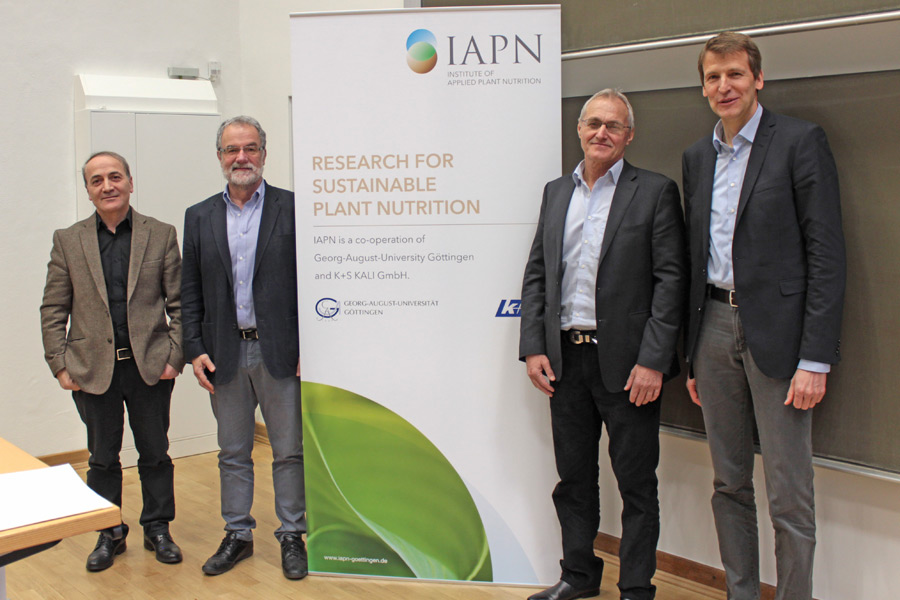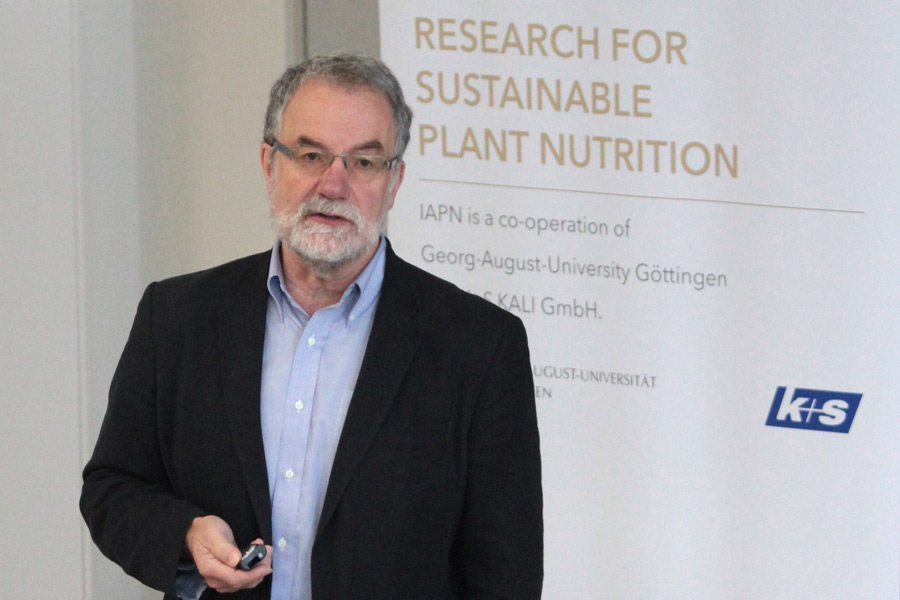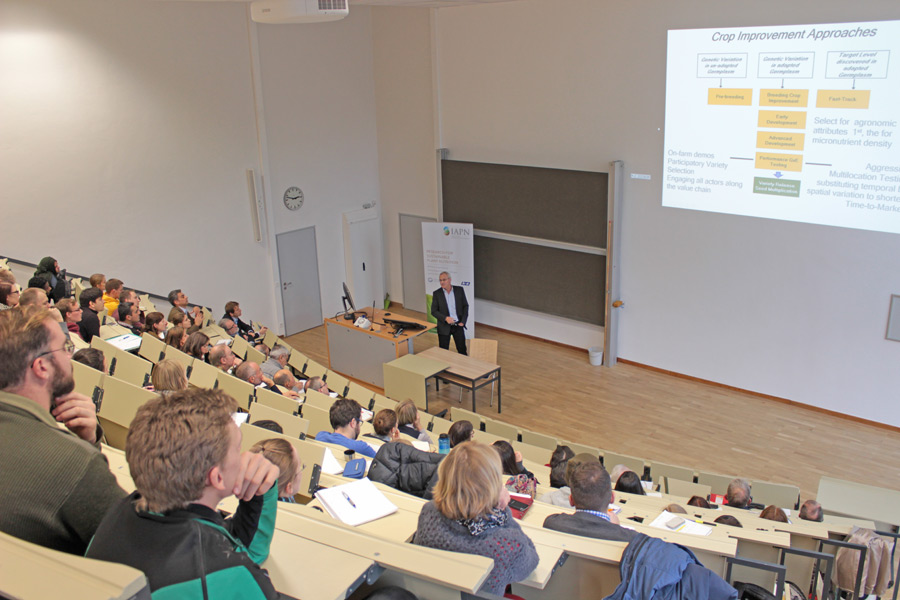In dialogue (left to right): Prof. Dr. Ismail Cakmak, Dr. Hans-Joachim Braun, Dr. Wolfgang H. Pfeiffer and Prof. Dr. Klaus Dittert. (Photo: IAPN)
Two internationally recognized experts on global food and wheat production attended the sixth event of the series "IAPN in Dialogue" that took place on December 6th, 2016 in Goettingen: Dr. Hans-Joachim Braun and Dr. Wolfgang H. Pfeiffer. The event was initiated by Prof. Dr. Ismail Cakmak, who is currently a guest researcher at the Institute of Applied Plant Nutrition, and was moderated by Prof. Dr. Klaus Dittert.
Achieving Yield Increases
Global wheat production needs to increase by 50% according to the FAO to meet the demand of 9 billion people by 2050. This represents a huge challenge for breeders, agronomists and farmers, as the additional acreage that would be needed cannot be made available, and global warming, water shortage and new emerging cereal diseases make yield increases difficult.
Dr. Brown illustrated in his presentation breeding approaches for increasing disease resistance in wheat. (Photo: IAPN)
Dr. Hans-Joachim Braun, Director of the Global Wheat Program at CIMMYT (International Maize and Wheat Improvement Center) in Mexico presented the work of the Center on wheat yield improvements. He illustrated the way in which climate change can impact food supply with an impressive example: "We measured the influence of increasing night temperatures on the yield at a Mexican experimental site. An increase in the average night temperature by 1°C reduces the yield per hectare by around 700 kilograms." Brown made a strong case for making more resources available for agronomic consulting in developing countries, as this is the only way that advances in breeding will actually be applied in practice.
Fighting Hidden Hunger
Dr. Wolfgang Pfeiffer, Global Director of the International HarvestPlus Program in Colombia, talked about breeding and disseminating varieties enriched with micronutrients as a strategy to tackle the problem of hidden hunger. Today, more than two billion people suffer from nutritional deficiencies, and micronutrient malnutrition through a lack of e.g. zinc, iron, vitamin A and iodine is the most widespread issue. The problem is known as "hidden hunger", and is particularly common in countries in which there is high consumption of cereal-based foods, which are dense in energy, but low in micronutrients. Micronutrient deficiency is the cause of diverse diseases and developmental disorders, especially in children. These include a reduced immune system, higher susceptibility to general diseases, higher mortality, and impaired mental development.
Dr. Pfeiffer presented the many years of work in the field done by the international HarvestPlus Program. (Photo: IAPN)
He also stressed the central importance of agronomic consulting for global food security. "Training smallholders in agronomic techniques is also giving people advice about diet and nutrition. We show in demonstrations how improved fertilization increases the zinc content in wheat and thus makes the wheat more valuable as a staple food for the family."
The two presentations and a statement by Prof. Cakmak were followed by intense discussion with the participants about various aspects of the talks. Dr. Brown pointed out in his concluding address that he looks forward to welcoming Goettingen students to CIMMYT and will be happy to answer any queries.








